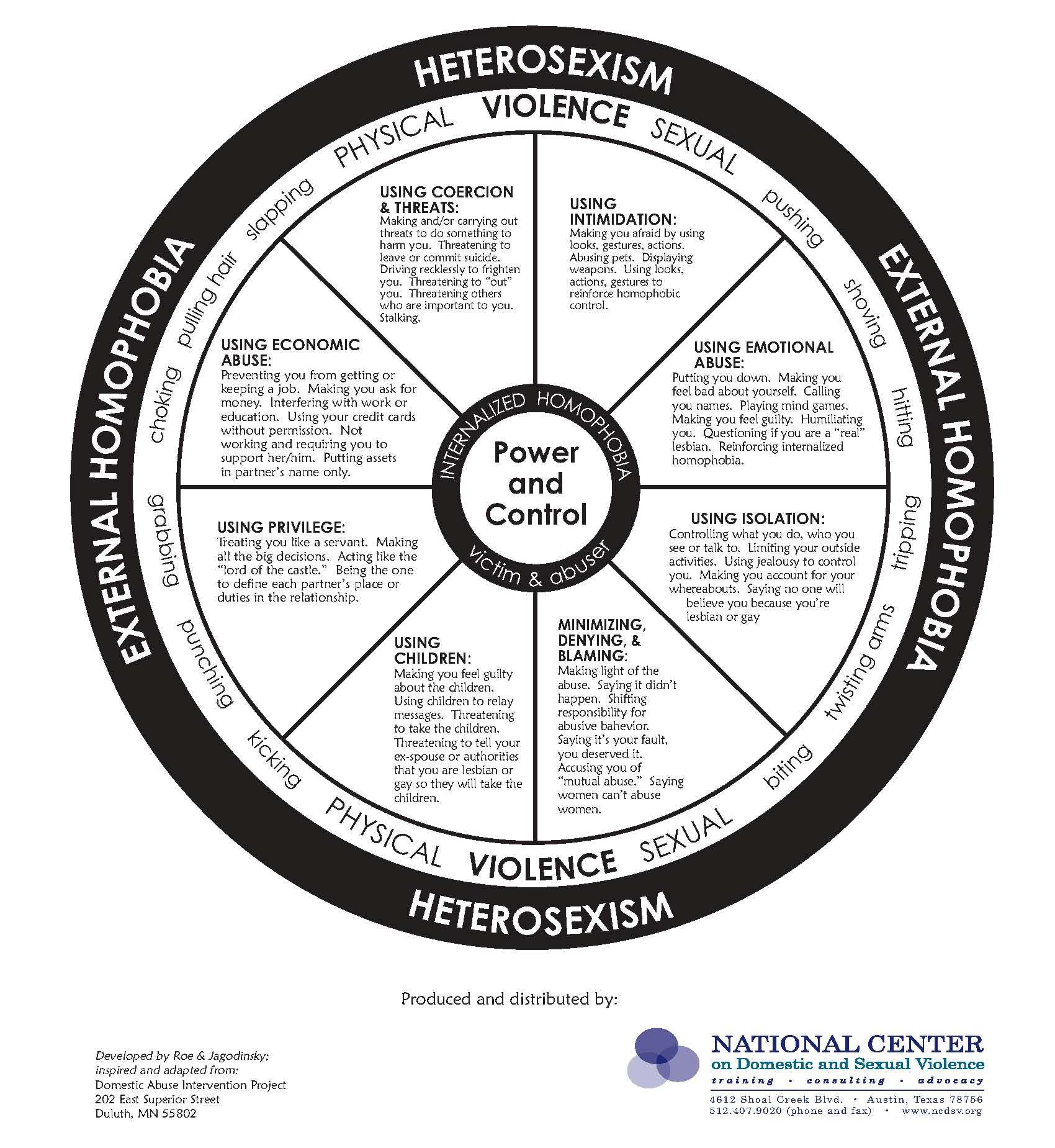According to the National Coalition of Anti-Violence Programs (NCAVP) intimate partner violence occurs in as many as one-in-three relationships regardless of the sexual orientation of the partners.
While aspects of domestic violence in the Lesbian, Gay, Bisexual, and Transgender (LGBT) communities are similar to those experienced by heterosexual victims, the NCAVP explains that there are unique challenges and barriers faced by LGBT individuals such as:
- “Outing” or threatening to out a partner’s sexual orientation or gender identity to family, employer, police, religious institution, community, in child custody disputes, or in other situations where this may pose a threat.
- Reinforcing fears that no one will help the victim because she/he is lesbian, gay, bisexual or transgender, or that for this reason, the partner “deserves” the abuse.
- Alternatively, justifying abuse with the notion that a partner is not “really” lesbian, gay, bisexual or transgender. This can be used both as a tool in verbal and emotional abuse as well as to further the isolation of a victim from community.
- Telling the survivor that abusive behavior is a normal part of LGBT relationships, or that it cannot be domestic violence because it is occurring between LGBT individuals.
- Monopolizing support resources through an abuser’s manipulation of friends and family supports and generating sympathy and trust in order to cut off these resources to the survivor.
- Portraying the violence as mutual and even consensual.
LGBT Domestic Violence Statistics:
- Approximately 50 percent of the lesbian population has experienced or will experience domestic violence in their lifetimes.
- Gay and bisexual men experience abuse in intimate partner relationships at a rate of 2 in 5, which is comparable to the amount of domestic violence experienced by heterosexual women.
- In one year, 44 percent of victims in LGBT domestic violence cases identified as men, while 36 percent identified as women.
- 78 percent of lesbians report they have either defended themselves or fought back against an abusive partner.
- The most common age of victims reporting LGBT domestic violence are those between the ages of 30-39 years.
There is a misconception that there is no help available for LGBT victims of domestic violence. The fact is at Hubbard House, help is offered on the basis of abuse, not on sexual orientation.
If you or someone you know is in an abusive relationship please call the Hubbard House 24-hour domestic violence hotline at (904) 354-3114 or (800) 500-1119. Hubbard House can help.
ABOUT HUBBARD HOUSE
Founded as the first domestic violence shelter in Florida in 1976, Hubbard House is a certified, comprehensive domestic violence center providing programs and services to more than 6,000 women, children, and men annually in Duval and Baker counties. While Hubbard House is most known for its emergency shelter, the agency also provides extensive adult and youth outreach services, school-based education, therapeutic childcare, batterers’ intervention programs, court advocacy and volunteer and community education opportunities. Visit www.hubbardhouse.org to learn more.

